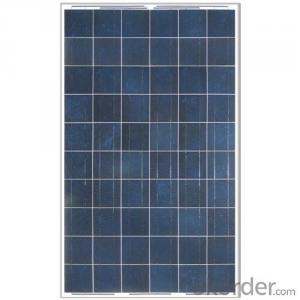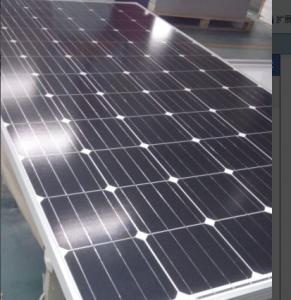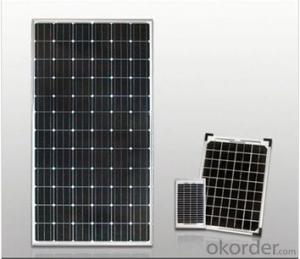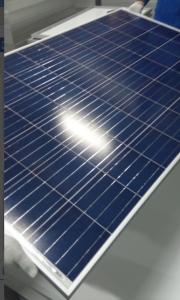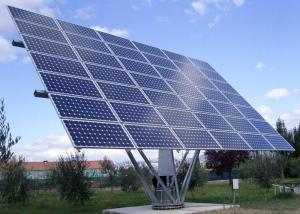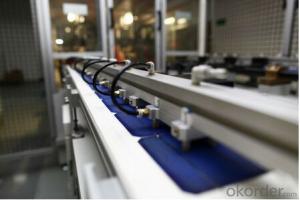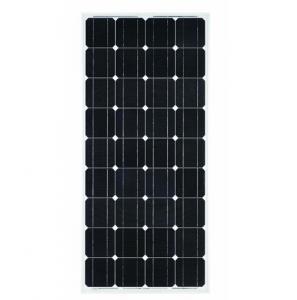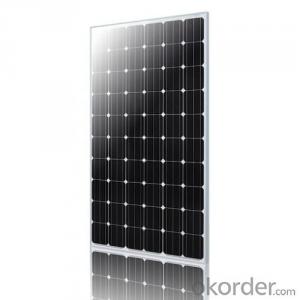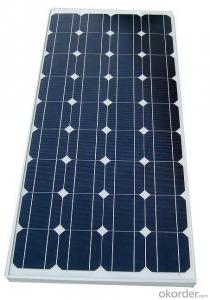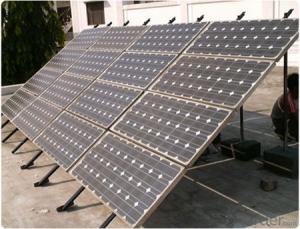Germany Solar Panels 280w/285w Solar Panel with TUV IEC MCS CEC IDCOL SONCAP Certificates
- Loading Port:
- Shanghai
- Payment Terms:
- TT OR LC
- Min Order Qty:
- 1000 watt
- Supply Capability:
- 100000000 watt/month
OKorder Service Pledge
OKorder Financial Service
You Might Also Like
- TUV IEC, MCS (UK), CE, CEC (Australia), INMETRO, IDCOL, SONCAP CERTIFIED
- [EU ANTIDUMPING DUTY-FREE]
- PROFESSIONAL SOLAR PANEL MANUFACTURER SINCE 2004
FEATURES
`Long Service Life
`High Efficency Solar Cells
`Special Aluminum Frame Design
`High Transmission,Low Iron Tempered Glass - TUV IEC, MCS (UK), CE, CEC (Australia), INMETRO, IDCOL, SONCAP CERTIFIED
- [EU ANTIDUMPING DUTY-FREE]
- PROFESSIONAL SOLAR PANEL MANUFACTURER SINCE 2004
FEATURES
`Long Service Life
`High Efficency Solar Cells
`Special Aluminum Frame Design
`High Transmission,Low Iron Tempered Glass
`Advanced Cell Encapsulation
APPLICATIONS
`Solar power stations
`Rural electrification, Small home power systems
`Power supply for traffic, security, gas industry
`12V and 24V battery charging system
`Other industrial and commercial applications
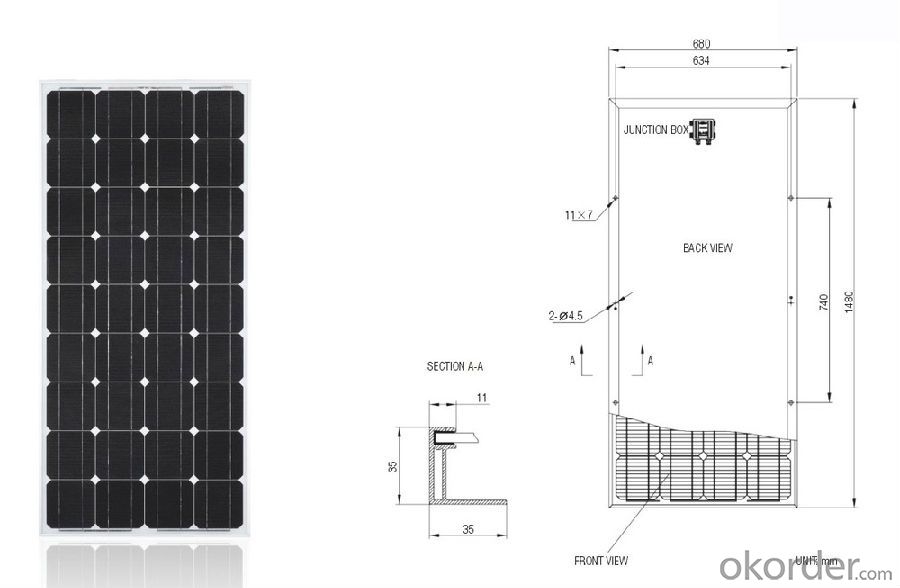
| ELECTRICAL CHARACTERISTICS | |||||||
| Model Number | KM(P)275 | KM(P)280 | KM(P)285 | KM(P)290 | KM(P)295 | KM(P)300 | |
| Maximum Power as per STC | Pmax(W) | 275 | 280 | 285 | 290 | 295 | 300 |
| Power Tolerance | % | ±3% | |||||
| Maximum Power Voltage | Vm(V) | 36.43 | 36.56 | 36.72 | 36.79 | 36.93 | 37.15 |
| Maximum Power Current | Im(A) | 7.55 | 7.66 | 7.77 | 7.89 | 7.99 | 8.08 |
| Open Circuit Voltage | Voc(V) | 43.7 | 42.92 | 44.06 | 44.21 | 44.35 | 44.5 |
| Short Circuit Current | Isc(A) | 8.1 | 8.17 | 8.23 | 8.33 | 8.41 | 8.72 |
| Maximum System Voltage | VDC | 1000 | |||||
| Cell Efficiency | % | 15.7 | 16.0 | 16.3 | 16.6 | 16.8 | 17.1 |
| Module Efficiency | % | 14.2 | 14.5 | 14.7 | 15.0 | 15.2 | 15.5 |
| Cells per Module | Pcs | 72 | |||||
| Cell Type | Polycrystalline silicon | ||||||
| Cell Size | mm | 156 x 156 | |||||
| Bypass Diodes | Pcs | 12Amp, 6 pcs | |||||
| Max. Series Fuse Rating | A | 15A | |||||
| Temperature coefficient of Isc | %/°C | 0.05 | |||||
| Temperature coefficient of Voc | %/°C | -0.35 | |||||
| Temperature coefficient of power | %/°C | -0.47 | |||||
| NOCT- Nominal operating cell temperature | °C | 47 ± 2 | |||||
| Operating Temperature | °C | -40 ~ +85 | |||||
| MECHANICAL CHARACTERISTICS | |||||||
| Dimensions | mm | 1954 x 990 x 50 | |||||
| Weight | Kg | 23.5 | |||||
| Type of Junction Box | TUV certified, IP65 | ||||||
| Cable Type, Diameter | TUV certified, 4mm2, 90 cm in length | ||||||
| Connector | compatible to Type 4 (MC4) | ||||||
| Tempered Glass | 3.2 mm, high transmission, low iron | ||||||
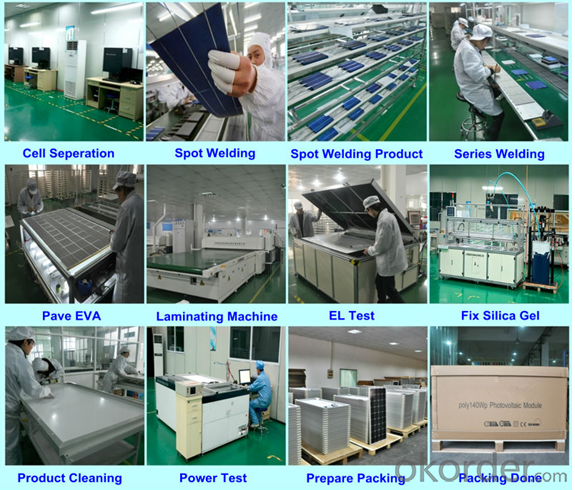 Packing
Packing
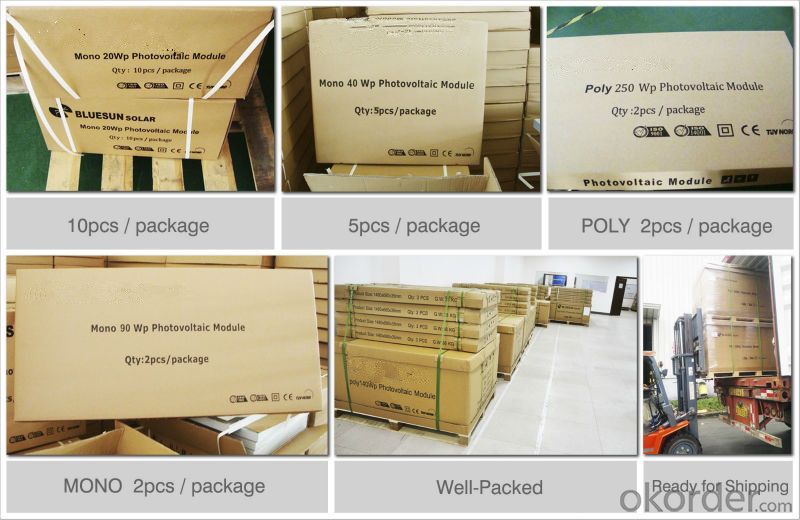
FAQ
1. What kind of Solar Cells does it have
---poly crystalline 156*156mm and 125*125mm or mono 125*125mm and 156*156mm
2. Is the front panel Glass or Plastic
---Tempered glass 3.2mm thickness or adjust to what you need, Light transmittance up to 95%.
3. Does it meet Europe Standards for Solar Energy
---This is TUV approval products, all the producing procedure apply TUV&UL.
4. What is the Efficiency level
--- Between 16-18.9% for solar cells.
5. What is the Nominal Voltage
--- 18v 20v 24v 36v 30v 48v , and so on, we can adjust to what you need.
6. What is the Warranty Period, How many years?
Power efficiency warranty:
---90% in 10 years; 80% in 25 years.
- Q: Can solar panels be installed on a concert venue or entertainment facility?
- Yes, solar panels can be installed on a concert venue or entertainment facility. In fact, many venues are increasingly adopting solar energy as a sustainable and cost-effective solution. Solar panels can be installed on rooftops, parking lots, or open spaces around the venue to generate clean and renewable electricity. This not only helps to reduce the environmental impact but also saves on energy costs in the long run.
- Q: I have several 6v 4.5a sealed lead acid batteries. I would like to hook one of them up to a solar panel and have it stay charged from the solar panel all the time, but not overcharged. Is there a simple way to do this with an IC or something? I am only a beginner with circuits so I want it to be something very easy to make. Basically, I want it to stay charged all the time so it's available if I need it for a power out or something.Thanks.
- What I would suggest is that you find a panel that is rated for 00 mA, at any voltage higher than 8 volts. A 2 or even 8-volt panel will do, because the voltage will drop to match the battery. Then I would get a diode to put in series with the panel to prevent the battery from discharging through the panel at night. That's called a blocking diode. At such low currents, a charge controller is not worth it. There is not enough power to overheat the battery, which is principally what a charge controller protects against in a larger system. Be aware that you could also simply plug a trickle charger for the battery into the wall outlet, at a cost of less than a penny a day in electricity.
- Q: I would like to connect a solar panel to a small fan. I am not sure as to what is needed to actually quot;connectthe two together. Any help is appreciated.
- Solar panel hooked to a battery or two then to a small inverter then to your 20 volt fan ....... Or .... Solar panel to 2 volt battery wired to a 2 volt fan. I use both
- Q: I live in Los Angeles area, I see the ads that, they will install solar panel for $0. I would like to know what is the catch ?Thanks You.
- Sh*t is expensive. I live in FL.....to solar a 500 sq foot house here ...even with the gov rebates and the discounts..etc..etc.. sts the home owner @ $24,000 dollars. They say you will recoup your $$$ in 0 years. 0 YEARS??? The gov should get behind this and make it cheaper...but that will not happen.
- Q: Is there a material that is capable of absorbing enough UV radiation to make it worth using as a flexible solar cell?Not flexible as in aluminum, but a material such as plastic (polycarbonate).
- Yes, they already exist. I have one here.
- Q: I need a solar panel which can light up 4 full loaded 5 rooms appartment houses
- good idea going solar, i would suggest doing a google search, as their are many suppliers. then you need to calculate the amount of wattage you think these apartment houses are going to require. volts x amps = watts. if you are going to be off of the power grid, then you will need a way to store excess energy during good times,( lots of sun) in order to use it during bad times ( no sun ). or see if you are able to sell your extra power back to your local power company, check because some companies do not allow this. you could even have a generator for emergencies if you go off the power grid. on final note, solar is a pretty sizable investment up front and your profits are seen mainly in the long run, but you will get energy savings immediately, but more likely those savings will go to paying off the solar panels also, you will need a converter to convert the ac (alternate current) produced by the panels into dc ( direct current ) which is used by the apartments. it will tie in to the existing electrical system in the apartments. i know germany is really pushing solar energy and they offer their citizens some pretty sweet deals to go solar. the companies are profiting from this so i would suggest looking for a supplier in germany, first. they may have better deals, or try bp (british petroeum) they have been in the solar business for awhile. i wish you success!
- Q: Can solar panels be used in multi-story buildings?
- Yes, solar panels can be used in multi-story buildings. They can be installed on the roof of the building or on vertical surfaces such as walls or balconies. The availability of space and the structural integrity of the building are important factors to consider when installing solar panels in multi-story buildings.
- Q: How do solar panels affect roof warranty?
- Solar panels can potentially affect roof warranties depending on the specific terms and conditions set by the manufacturer or installer. It is advisable to consult with the manufacturer or installer and review the warranty documents to understand any potential impact on the roof warranty when installing solar panels.
- Q: DIY, buying solar panels, room is barely 200 sq. ft. have a 5000 btu air conditioner, how many watts do I need, thinking of buying 75 watt solar panels, have space on the roof.
- The okorder /
- Q: Can solar panels be installed on mountain huts or lodges?
- Yes, solar panels can be installed on mountain huts or lodges. In fact, mountainous regions with ample sunlight can be ideal locations for solar panel installations. These panels can harness the sun's energy and convert it into electricity, providing a sustainable and reliable source of power for the huts or lodges.
Send your message to us
Germany Solar Panels 280w/285w Solar Panel with TUV IEC MCS CEC IDCOL SONCAP Certificates
- Loading Port:
- Shanghai
- Payment Terms:
- TT OR LC
- Min Order Qty:
- 1000 watt
- Supply Capability:
- 100000000 watt/month
OKorder Service Pledge
OKorder Financial Service
Similar products
Hot products
Hot Searches
Related keywords
